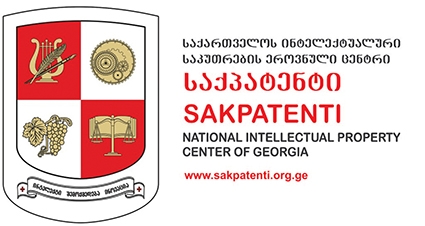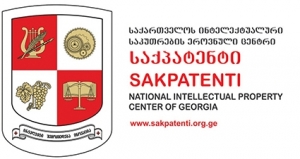Dechert OnPoint: Proposed Amendments to Georgia’s New Patent Regulations
Dechert Georgia, through the contribution of partners Archil Giorgadze and Nicola Mariani and joined by senior associate Irakli Sokolovski and associates Ana Kostava, Ana Kochiashvili and Natia Lapiashvili, is partnering with Georgia Today on a regular section of the paper to provide updated information regarding significant legal changes and developments in Georgia. In particular, we will highlight significant issues which may impact businesses operating in Georgia.
INTRODUCTION
Since the signing of the Association Agreement (the “Association Agreement”) between the European Union and the European Atomic Energy Community and its Member States and Georgia in 2014, which entered into force in July 2016, LEPL National Intellectual Property Center of Georgia–Sakpatenti (“Sakpatenti”) has been developing amendments to several Georgian laws related to the protection of intellectual property rights. The proposed amendments aim to comply with Georgia’s obligations under the Association Agreement and cover laws regarding copyright and related rights, patents, trademarks, design, pesticides and agricultural chemicals, medicines and pharmaceutical activities. Some amendments to the Civil Procedural Code of Georgia have also been elaborated to include provisions regarding the specificities of judicial proceedings on cases related to the protection of special rights attached to objects of intellectual property.
This edition of OnPoint provides an overview of the major amendments to the Patent Law of Georgia (the “Law”). Namely, the article briefly explains the possibility of issuing supplementary protection certificates to plant protection products as well as Bolar Exemptions, new mechanisms for compulsory licensing and cross-licensing and additional mechanisms proposed for effective enforcement of patent-related rights.
SUPPLEMENTARY PROTECTION CERTIFICATE
The proposed amendments allow for the possibility of issuing supplementary protection certificates to both pharmaceutical and plant protection products subject to administrative authorization before being put on the market. The supplementary protection of plant protection products is a new facet of the Law, thus the proposed draft law provides a definition of plant protection products. In addition, the new regulations require the granting of a supplementary protection certificate in cases of extension of the patent protection period as well as the specifying of terms and procedures for granting the supplementary protection certificate. The supplementary protection period may not exceed a period of five years.
Considering that the supplementary protection certificate extends the patent protection period in certain instances, the proposed amendments introduce a new regulation known as the “Bolar Exemption”. This regulation is intended to balance the rights of patent holders against the public interest. Bolar Exemptions guaranteed under European Directives 2001/82EC and 2001/82EC allow those companies producing generic pharmaceutical products to carry out preparatory procedures in order to enter a market immediately following expiration of a patent. These companies are exempted from the obligation to submit the results of toxicological and pharmaceutical tests and clinical trials in order to obtain access to the market. This principle allows the use of inventions for experiments and trials, provided that: (a) they will not be used for commercial purposes; and (b) the pharmaceutical products do not reach the market before the patent expires.
COMPULSORY LICENSING
According to the draft laws prepared by Sakpatenti, a patent-protected invention or a utility model can be used within the territory of Georgia based on a compulsory license granted by a competent body. This applies under special circumstances such as natural disasters, catastrophes, epidemics and national defense and public health crises. The proposed amendments designate Sakpatenti's permanent council as the competent body for issuing compulsory licenses and specifying the requirements for compulsory licensing, as well as the limits and terms of use for a patent-protected invention or utility model. The terms and conditions for compulsory licensing shall be determined by a relevant government decree. A decision of the permanent council of Sakpatenti on issuing a compulsory license is subject to periodic review and may be terminated once the conditions underlying its issuance are no longer present.
CROSS-LICENSING
The new principle of cross-licensing is based on the anti-monopoly policy and concern for the public interest and applies to circumstances when it is impossible to use a patent-protected invention or utility model without violating the special rights of earlier patents. However, a cross-licensing application must substantiate that the technical solution, invention or utility model is essentially dependent on an earlier patent-protected invention or utility model and has significant economic advantages as compared to the earlier invention or utility model.
EFFECTIVE ENFORCEMENT
The proposed amendments introduce additional mechanisms for the prevention, suppression and sanctioning of violations of patent-related rights. In order to protect special rights, the draft regulations authorize patent holders to request the destruction of products manufactured as a result of infringement of their special rights, their removal from the market or destruction of the technical appliances used during production. The patent holders are granted discretion to request damages, recovery of income received through the infringement and on-off compensation from the violator of their special rights. The court may address these measures against an “intermediary”–a new term introduced by the proposed amendments denoting any person whose services are or were used in economic activities that infringe special rights–upon the request of a patent holder.
The draft law proposes that in appropriate cases and at the request of the person liable for infringement of the special rights the court may order pecuniary compensation to be paid to the injured party in lieu of the abovementioned measures if that person acted unintentionally and without negligence or if execution of the measures in question would cause disproportionate harm to the infringer. At the same time, the pecuniary compensation must be acceptable to the patent-holder. The proposed amendments define mechanisms for calculating the amount of compensation.
CONCLUSION
According to Sakpatenti, the proposed amendments will ensure that the interests of patent holders are balanced notably through the establishment of reasonable limits to the monopoly the current legislation grants to patent holders. After Sakpatenti finalizes the draft laws and discussions it is currently holding with various circles of scholars and practicing lawyers regarding the proposed amendments, final drafts will be submitted to the Parliament of Georgia in accordance with the Government of Georgia's formal procedures for further discussion and adoption.
* * *
Note: this article does not constitute legal advice. You are responsible for consulting with your own professional legal advisors concerning specific circumstances for your business.
Dechert’s Tbilisi office combines local service and full corporate, tax and finance support with the global knowledge that comes with being part of a worldwide legal practice.
Dechert Georgia is the Tbilisi branch of Dechert LLP, a global specialist law firm that focuses on core transactional and litigation practices, providing world-class services to major corporations, financial institutions and private funds worldwide. With more than 900 Lawyers in our global practice groups working in 27 offices across Europe, the CIS, Asia, the Middle East and the United States, Dechert has the resources to deliver seamless, high quality legal services to clients worldwide. For more information, please visit www.dechert.com or contact Nicola Mariani at nicola.mariani@dechert.com.











